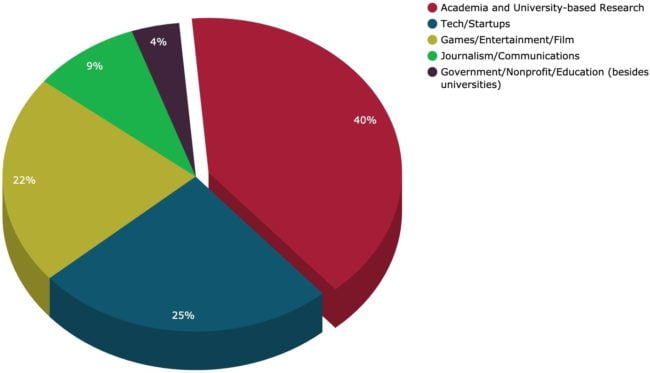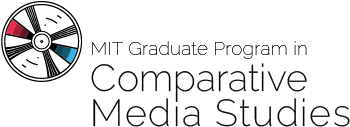Studying Media, Making Media
CMS no longer has an active masters program. This site is for archival purposes only.
In Comparative Media Studies, we investigate and engage in the world’s complex media environment. We research multiple media forms and technologies, from books, pamphlets, and silent films to social media, virtual reality, and globally-networked games. We study the emerging media practices of states, corporations, social movements, fan communities, and everyday people. Embracing MIT’s motto of mens et manus, we design and create media through practice-based research labs. We examine media within the contexts of varied cultures, societies and social structures, and we critique and design media to empower communities. Above all, we are committed to an ethically and critically engaged approach to the study and production of media.
Comparative Media Studies is not the study of interactive technologies themselves; it focuses on social and cultural interactions with technology. With media integrated into all aspects of modern experience, it is impossible to fully understand our institutions and practices without understanding media. The most urgent questions confronting us are social and cultural, not purely technological.
MIT has played a central role in the development and analysis of new media technologies, including radar, communications technologies, documentary film, media ownership, defining the “manufacture of consent,” and our personal and public relations with technology.
A Common Vocabulary
For industry, government, journalism, and the academy to work together to help society adjust to media transition and transformation, there must be a common vocabulary for discussing the challenges of an evolving media environment.
The need for this shared understanding argues for new styles of media studies where future leaders in academia, creative industries, public intellectuals, and media companies study side-by-side. They do that here in the Comparative Media Studies master’s program.
A Need for New Expertise
Media designers, consultants, and business leaders need the tools to think critically about media and their potential for circulating information and dispersing intellectual capital.
Government leaders must be able to make meaningful decisions about policy and regulation.
Our curriculum is thus designed to teach students to make and reflect upon media and, in the process, to acquire important skills in teamwork, leadership, problem solving, collaboration, brainstorming, communications, and project completion, which will prepare them for a wide range of academic and professional careers.
CMS literally changed my life. It showed me how hyphenation was vital to imagine and create the new progressive world I wanted to live in. Theory-practice. Global-local. High culture-pop culture. Arts-science. Coming from an undergrad education in India, in which I had always thought in silos, this was brain-popping and eye-opening and everything I have done professionally, and I would say also personally, maybe, has been because CMS broadened my horizons exponentially.
Parmesh Shahani, ’05, author of Queeristan: LGBTQ Inclusion at the Indian Workplace
How does CMS fit into MIT and the media studies field?
Comparative Media Studies is part of Comparative Media Studies/Writing, a humanities section within MIT’s School of Humanities, Arts, and Social Sciences. It has a long history of collaborating across MIT, and students are encouraged and helped to find intellectual and social connections.
Since its founding in 1999, the CMS master’s program was and is the only one to combine a humanities education with hand-on practice within research groups — what we often call “applied humanities”.
What kind of students do we look for?
We want Comparative Media Studies master’s students to build on our tradition of leadership to focus historical and theoretical attention on the world’s changing media environment. We’re looking for students ready to observe first-hand, and then contribute to, the experimentation and research leading to the next wave of media breakthroughs. Our job is to provide a bridge between the technological and humanistic sides of MIT, by together examining the social and cultural impact of the changing media landscape.
More simply, we look for ambitious, curious people ready to make a difference, whether they go on to be scholars, industry professionals, or, as one early supporter put it, to invent jobs that don’t yet exist.
What do our students do afterward?




